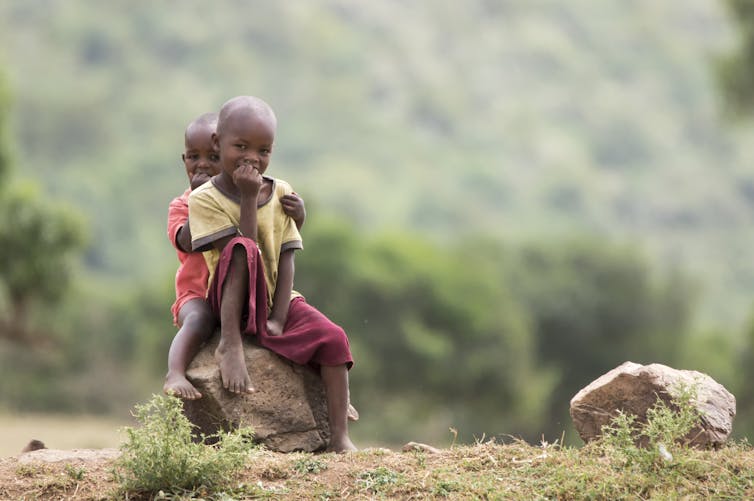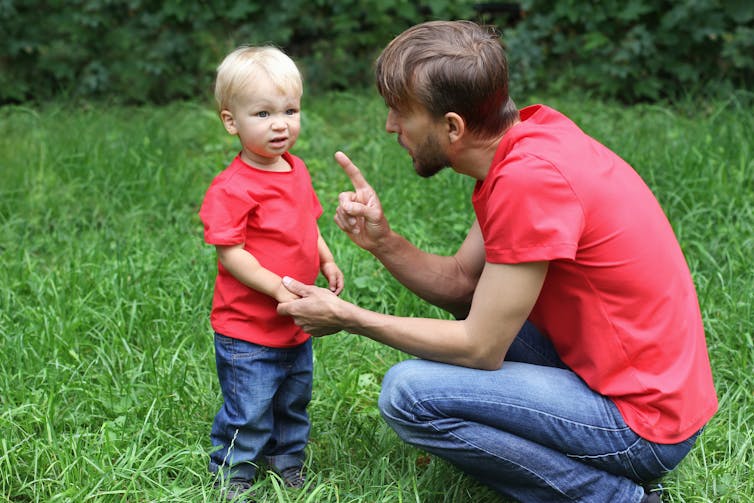Ga Dept of Family and Children's Services Careers
From educational toys to governmental guidelines and detailed nursery progress reports, there are lots of resources bachelor to assist parents runway and facilitate their children'southward development. But while there are tricks nosotros tin can use to teach children to talk, count, draw or respect others, a surprisingly big function of how they develop is adamant by the culture they grow up in.
Child development is a dynamic, interactive procedure. Every child is unique in interacting with the world effectually them, and what they invoke and receive from others and the environment likewise shapes how they remember and behave. Children growing up in different cultures receive specific inputs from their environment. For that reason, there's a vast array of cultural differences in children's beliefs and behaviour.
Linguistic communication is one of the many ways through which civilization affects development. Nosotros know from research on adults that languages forge how people think and reason. Moreover, the content and focus of what people talk about in their conversations too vary beyond cultures. As early every bit infancy, mothers from different cultures talk to their babies differently. German mothers tend to focus on their infants' needs, wishes or them equally a person. Mothers of the African tribal group Nso, on the other hand, focus more on social context. This tin include the kid's interactions with other people and the rules surrounding it.

This early on exposure affects the style children attend to themselves or to their relationship with others – forming their self image and identity. For example, in Western European and North American countries, children tend to depict themselves around their unique characteristics – such as "I am smart" or "I am skillful at drawing". In Asian, African, Southern European and South American countries, however, children describe themselves more often around their human relationship with others and social roles. Examples of this include "I am my parents' kid" or "I am a good student".
Because children in different cultures differ in how they recall virtually themselves and relate to others, they as well memorise events differently. For example, when preschoolers were asked to describe a contempo special personal experience, European-American children provided more detailed descriptions, recalled more specific events and stressed their preferences, feelings and opinions about information technology more than Chinese and Korean children. The Asian children instead focused more than on the people they had met and how they related to themselves.
Cultural effects of parenting
Parents in different cultures as well play an of import role in moulding children'south behaviour and thinking patterns. Typically, parents are the ones who prepare the children to collaborate with wider society. Children's interaction with their parents often acts every bit the archetype of how to behave around others – learning a variety of socio-cultural rules, expectations and taboos. For example, young children typically develop a conversational fashion resembling their parents' – and that often depends on culture.
European-American children often provide long, elaborative, self-focused narratives emphasising personal preferences and autonomy. Their interaction style also tends to be reciprocal, taking turns in talking. In dissimilarity, Korean and Chinese children's accounts are usually brief, relation-oriented, and bear witness a nifty concern with authority. They frequently have a more passive role in the conversations. The same cultural variations in interaction are also evident when children talk with an independent interviewer.

Cultural differences in interactions between adults and children likewise influence how a child behaves socially. For instance, in Chinese culture, where parents assume much responsibility and potency over children, parents collaborate with children in a more than administrative manner and demand obedience from their children. Children growing upwards in such environments are more likely to comply with their parents' requests, even when they are reluctant to do so.
By contrast, Chinese immigrant children growing up in England behave more similarly to English language children, who are less likely to follow parental demands if unwilling.
From class to court
Equally the world is getting increasingly globalised, cognition regarding cultural differences in children'southward thinking, memory and how they interact with adults has important applied implications in many areas where you have to understand a child'due south psychology. For instance, teachers may need to appraise children who come from a diversity of cultural backgrounds. Knowing how children coming from a unlike culture think and talk differently can help the teacher better interview them equally function of an oral bookish test, for example.
Another important area is forensic investigations. Existence aware that Chinese children tend to call back details regarding other people and be brief in their initial response to questions may enable the investigator to let more than fourth dimension for narrative practice to set up the child to reply open-concluded questions and prompt them with follow up questions.
Also, knowing that Chinese children may exist more sensitive and compliant to dominance figures – and more obedient to a perpetrator within the family unit – an interviewer may need to spend more time in building rapport to assist the kid relax and reduce their perceived say-so. They should as well be prepared to be patient with reluctance in disclosing abuse within families.
While children are unique and develop at their own step, the cultural influence on their development is clearly considerable. It may even affect how speedily children reach dissimilar developmental milestones, merely inquiry on this complicated subject is all the same inconclusive. Chiefly, knowledge most cultural differences tin can also help u.s.a. pin down what all children have in common: an insatiable marvel almost the world and a love for the people effectually them.
vancleavedientiong40.blogspot.com
Source: https://theconversation.com/how-culture-influences-childrens-development-99791
0 Response to "Ga Dept of Family and Children's Services Careers"
Post a Comment